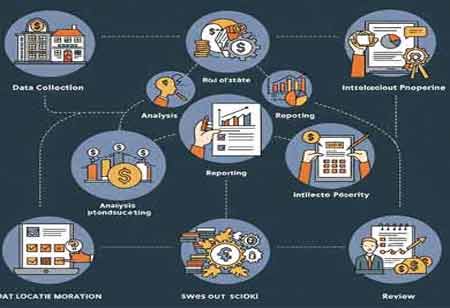CLOSE
Specials
- RegTech Europe
- Financial Risk Management APAC
- Investment Banking APAC
- Corporate Advisory APAC
- Regtech APAC
- Escrow Services
- Digital Banking Latam
- Trading Solutions APAC
- Treasury Management Europe
- CPA Firms Canada
- Financial Risk Management Europe
- Mortgage Broker
- Financial Licensing Europe
- RIA Advisory Europe
- FinTech Canada
- Financial Asset Management APAC
- Investment Banking Canada
- Payment Solution
- Lending Mangment Latam
- Payment Solution Europe
- Broker Dealer Firms Canada
- Alternative Investments Canada
- Financial Fraud
- Investment Management Latam
- Financial Health Europe
- Lending mangment
- Financial Marketing
- Proprietary Trading Europe
- Wealth Management
- FinTech
- Financial Brokerage Firm APAC
- Investment Advisory Europe
- Investment Advisory APAC
- Wealth Management MENA
- Claim Adjusting
- Claim Adjusting APAC
- Mergers and Acquisitions Consulting APAC
- Equipment Financing
- CPA Firms
- Mergers and Acquisitions Consulting Canada
- Investment Services
- Valuation Services Canada
- Wealth Management APAC
- Broker Dealer Firms
- Debt Collection Agencies
- Mergers and Acquisitions Consulting
- FinTech Europe
- Fintech Latam
- Financial Planning / Retirement
- Investment Management
- Financial Compliance
- Digital Banking Europe
- CFO Services
- Debt Collection Agencies Europe
- Wealth Management Europe
- Mergers and Acquisitions Consulting Europe
- Financial Restructuring Europe
- Financial Portfolio Management Canada
- Business Loan
- Payment and Card Latam
- Wealth Management Latam
- Mergers and Acquisitions Consulting Latam
- Tax Advisory Canada
- Trading Solutions Europe
- Alternative Investments
- Digital Insurance Europe
- Investment Services Latam
Weekly Brief
×Be first to read the latest tech news, Industry Leader's Insights, and CIO interviews of medium and large enterprises exclusively from Financial Services Review
Thank you for Subscribing to Financial Services Review Weekly Brief
Debt Collection and Consumer Rights in Europe
Dealing with debt collectors can be a stressful experience.

By
Financial Services Review | Tuesday, July 23, 2024
Stay ahead of the industry with exclusive feature stories on the top companies, expert insights and the latest news delivered straight to your inbox. Subscribe today.
Directive 2014/35/EU safeguards consumers from unfair debt collection practices, ensuring they have the right to request information, dispute debt validity, maintain professional communication, and access debt counselling services.
FREMONT, CA: Dealing with debt collectors can be a stressful experience. However, robust protections are in place for consumers residing in the European Union. The European Union enforces Directive 2014/35/EU on unfair commercial practices, establishing a consumer rights baseline during debt collection across member states. This directive ensures that consumers have recourse and are safeguarded against aggressive or misleading tactics.
The European Union (EU) enforces Directive 2014/35/EU on unfair commercial practices, including debt collection regulations. This directive establishes a baseline for consumer protection across member states, although individual EU countries may implement additional rules offering even more robust safeguards.
Essential consumer rights during debt collection in Europe include several vital protections. Consumers have the right to request clear and comprehensive information about their debt. This includes details such as the creditor's identity, the amount owed, a breakdown of charges, and the original agreement. Additionally, they are entitled to dispute the debt’s validity and request validation evidence from the collector.
Debt collectors are prohibited from engaging in harassment. This includes excessive phone calls, contacting consumers at unreasonable times, making threats of violence or arrest, or disclosing debt information to third parties such as employers or friends. All communication from debt collectors must remain professional and respectful.
Unfair practices are also strictly regulated. Debt collectors are prohibited from using deceptive tactics such as impersonating legal authorities or implying imminent legal action. They must not pressure consumers into unfair payment plans or impose unauthorised charges.
Consumers can follow several practical steps to effectively navigate debt collection. First, it is crucial to request written validation of the debt, which should detail the creditor, the original amount, accrued interest, and any late fees. It is also important to maintain thorough records of all communications with the collector, including phone records, emails, and letters. Consumers should document dates, times, and the names of individuals they speak with.
If errors are identified in the debt, they should be disputed promptly. This involves informing the collector in writing and specifying the reasons for the dispute. Additionally, free or low-cost debt counselling services are available in most European countries. These services offer valuable guidance on managing debt, negotiating with creditors, and understanding legal rights.
Understanding one's rights and taking proactive measures can empower individuals to address debt collectors confidently. Individuals can ensure a fair and respectful debt collection process by requesting validation, maintaining thorough records, promptly disputing errors, and seeking professional guidance when necessary. It is important to remember that European Union regulations provide protection, so individuals should utilise the available resources to safeguard their interests.

Copyright © 2025 Financial Services Review. All rights reserved





